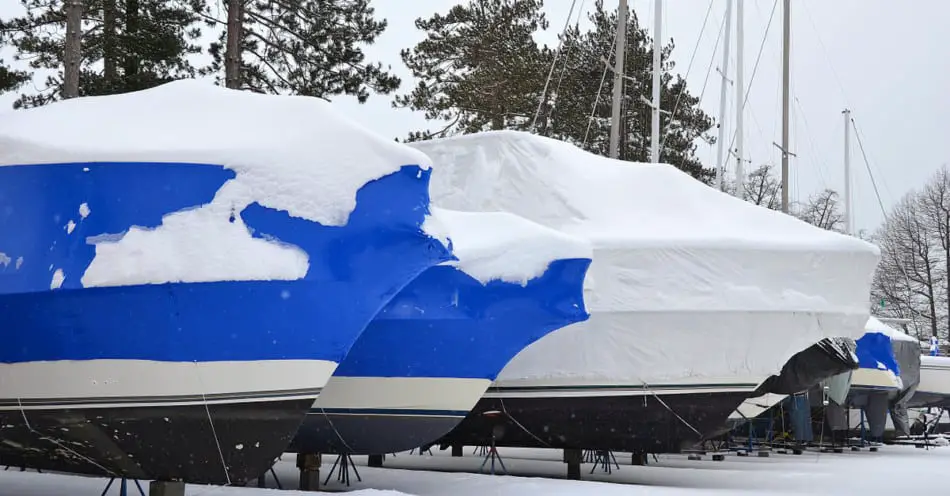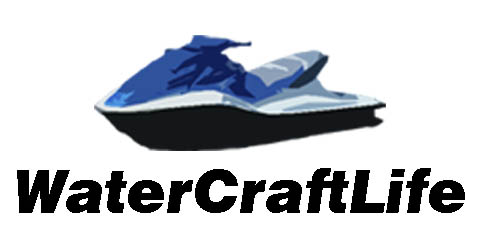Winterizing a boat ensures that during the months of inactivity, the systems on the boat do not deteriorate. The investment in time taken to thoroughly prepare your boat to be closed up and stored securely will pay back the time and money required to get the boat seaworthy for the new season. Whether you have a simple row boat, open bow runabout, or 36+’ yacht, it is important to care for and winterize your boat to ensure it lasts for many years.
Exposure to a marine environment is the toughest on the engine, electrical system, and mold growth in the damp interior. Months of leaving the batteries connected will damage them beyond repair. The upholstry and canvas left exposed will have deteriorated significantly during the winter storms.
It would be worth paying an expert to winterize your boat, whether the boat will be left in the water, put on a hard-stand, or trailer such as the case with most boats under 30 feet. Many marinas offer such services, which will cost you less than just leaving the boat to deteriorate during the winter months. Let’s look at what will happen to your boat if you don’t have it winterized.
What Is The Worst That Can Happen If A Boat Is Not Winterized?
The worst case scenario is that your boat engine block freezes, your water Iines freeze, and mold grows inside your cabin and seat cushions due to improper covering. So yes, it is important to winterize your boat.
What Can Go Wrong On The Outside of a Boat that Isn’t Winterized?
The worst-case scenario is that a not properly tied up boat could break loose during winter storms and be totally destroyed. If you are in the northern hemisphere, ice can build up and ruin the hull of your boat.
Water, dirt, grime, snow, branches, etc will get inside a boats cover unless it is properly shrink wrapped and covered and destroy the seat cushions, carpet, upholstery, fiberglass, and anything it can get its hands on.

Taking the time to properly cover your boat will do wonders on ensuring your interior is kept in great shape and also protect your boat from unnecessary UV rays from the sun.
Boat Insurance is expensive, and the fine print requires that boat owners take due care in protecting their assets. Your boat insurers may decline to reimburse you for the loss if you cannot prove that the boat was properly prepared for long-term storage.
If you have a saliblat, sails left up during the cold weather winter months will be subjected to the elements and deteriorate faster than would be the case if they were taken down, cleaned, inspected, repaired, and stored properly. The mooring lines used to tie up the boat will chafe in not protected by chafe guards where they make contact with cleats and the sides of the boat.
Leaving up sails and rigging also results in additional windage that will increase the force of the wind on the boat and the mooring lines. The Bimini tops and solar panels are also at risk of being torn off the boat in severe winter storms.
What Can Go Wrong On The Inside of an Unwinterized Boat?
Sea-cocks left open for the duration of the winter may fail and cause the boat to flood and sink. All sea-cocks must be closed except for the drain from the sink in the galley. The head will develop a very unpleasant smell during the months of storage. The head needs to be cleaned and flushed with fresh water and then filled with anti-freeze.
Shutting up the cabin during winter creates a perfect environment for mold and bacteria growth in the bilges, fridge and freezer, and all storage compartments inside the boat. You will be met with an overpowering stench when opening up the boat after months of sitting unused.
A dehumidifier and low-energy greenhouse heater must be installed in the galley to draw out the moisture and keep the inside of the cabin dry. The water extracted by the humidifier must be allowed to drain into the sink and out of the only sea-cock to be left open during the storage period.
Even with the best precautions to keep the cabin air dry, mold can still grow in the dark storage locations in the cabin. All food, clothes, sails, and bedding should be removed to prevent them from becoming moldy. Stripping the interior contents of the boat as much as possible also allows you to assess which items to discard, service, or replace before the start of the new season.
Engine Trouble on a Boat that Wasn’t Winterized
The fuel tanks and fuel supply lines will fill up with moisture, and condensation will form unless you use a fuel stabilizer. The water and bacteria will cause severe deterioration in the fuel. Cleaning up the fuel system before the new season will be an expensive and time-consuming exercise. Leave the fuel tanks and fuel lines filled with no airlocks in the system.
The engine may corrode and be difficult to start after months of sitting unattended. It is best to use fogging oil to pretect your eneine during winter storage periods.The water in the raw water cooling system will cause galvanic corrosion of the aluminum and copper components. The heat exchanger may be blocked and result in overheating of the engine at the start-up.
You will need to fill your raw water cooling system with non toxic antifreeze to ensure your coolent lines or engine block does not freeze causing unnecessary engine repairs.
Electrical Issues on a Boat that Wasn’t Winterized
The house battery bank and engine starter battery will be completely flat if they have been left connected to the electrical system all winter. Even when no devices are running off the batteries, small amounts of charge will be lost every day, leaving the batteries dead or damaged.
Batteries should be disconnected and left on a charge maintainer to ensure their long life. Freezing temperatures can freeze the liquid and damage your batteries. You may need to disconnect and bring inside a heated garage or basement for proper storage.
Batteries are expensive and, if well cared for, can last eight years or longer. If not properly serviced and stored during winter, you have a steep bill coming your way. If the boat is left connected to shore power, the batteries must be connected to trickle chargers to manage their load during winter.
Fire on a boat originates from the electrical systems in most cases. Leaving the electrical system fully connected during winter increases the risk that wiring can overheat and cause a fire. Besides disconnecting the batteries, all other electrical devices should be unplugged and removed from the boat where possible.
The risk of leaving expensive navigation systems and other electrical devices on board may also result in the theft of these devices. The risk of fire and theft is high enough to warrant a proper shutdown, storage.
Conclusion
Failing to prepare your boat for being stored during long periods will cause significant damage, which will require time and money to repair. If you don’t have the time to perform proper winterization, then pay someone to do it for you. The cost will be far less than not having it done.
Boats of all sizes and uses need to be properly cared for to maintain their level of seaworthiness. Exposure to a harsh marine environment requires constant attention. If this is not in your make-up, you should consider chartering a boat instead of ownership.
